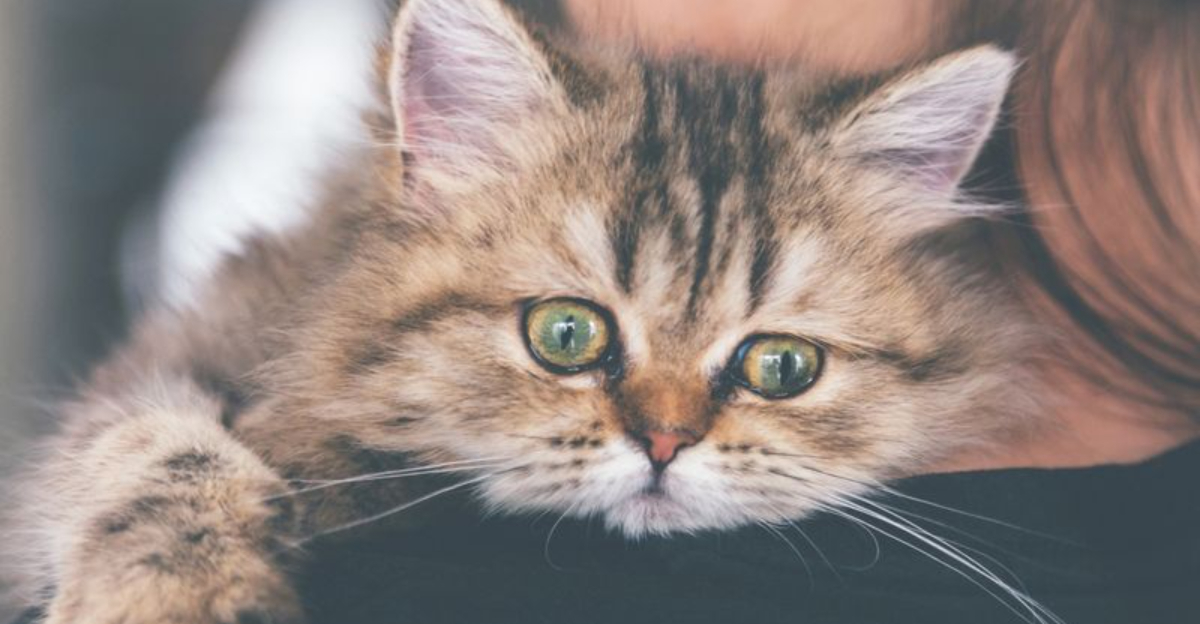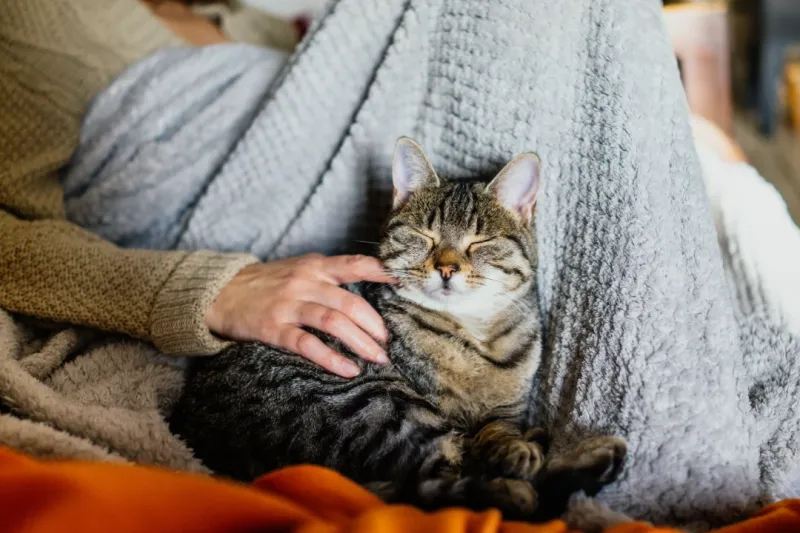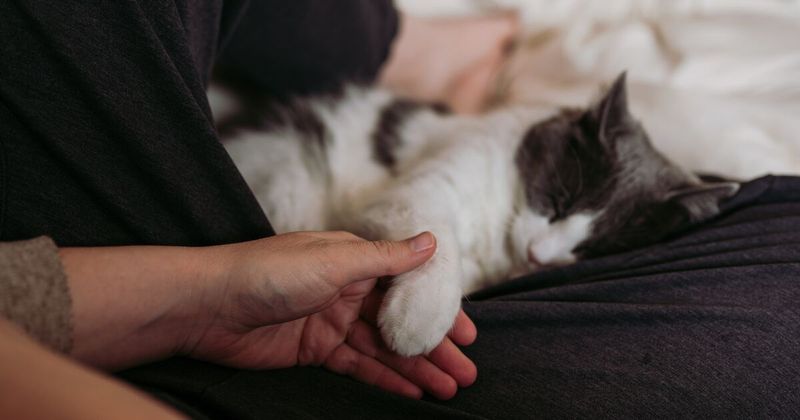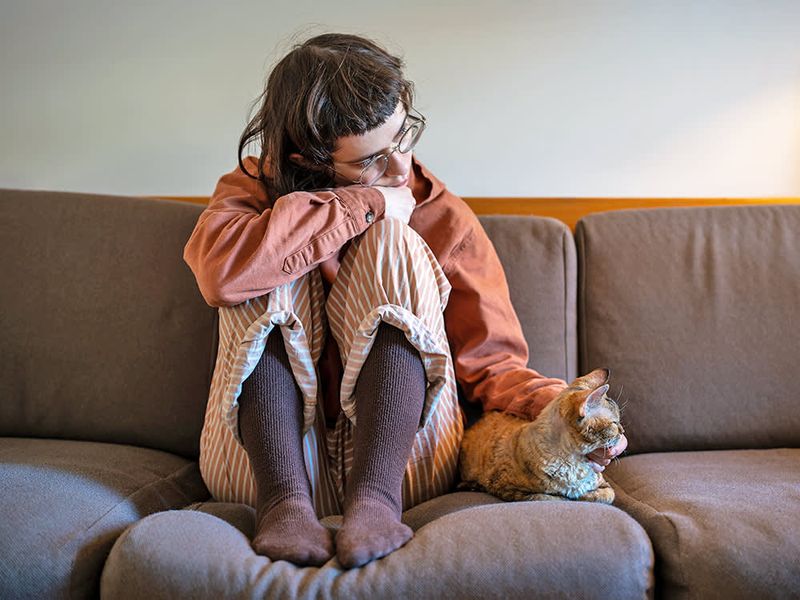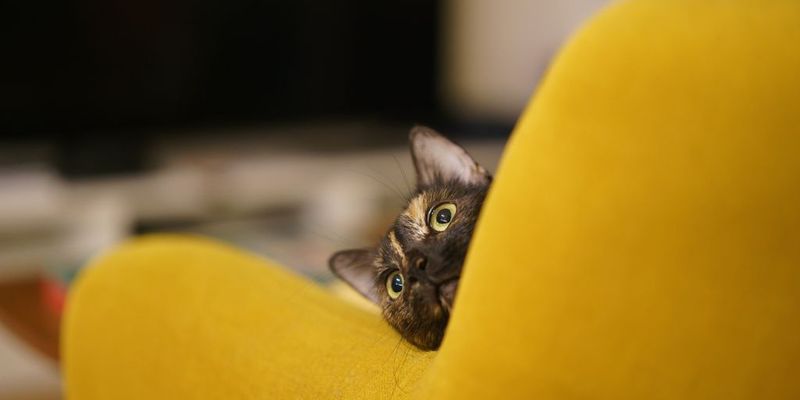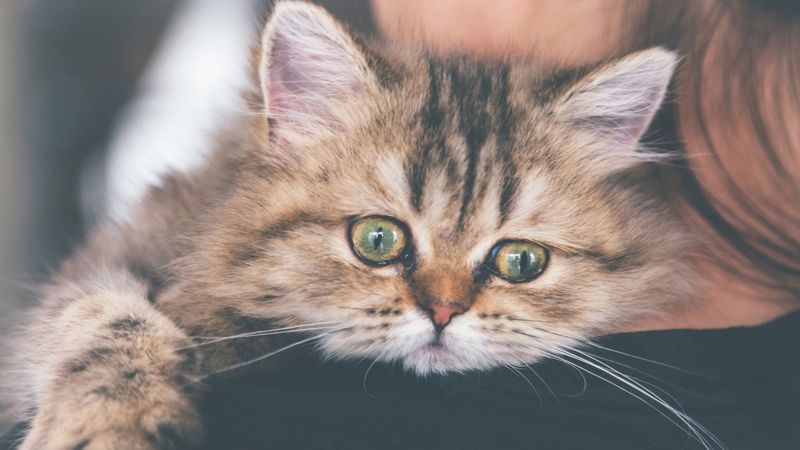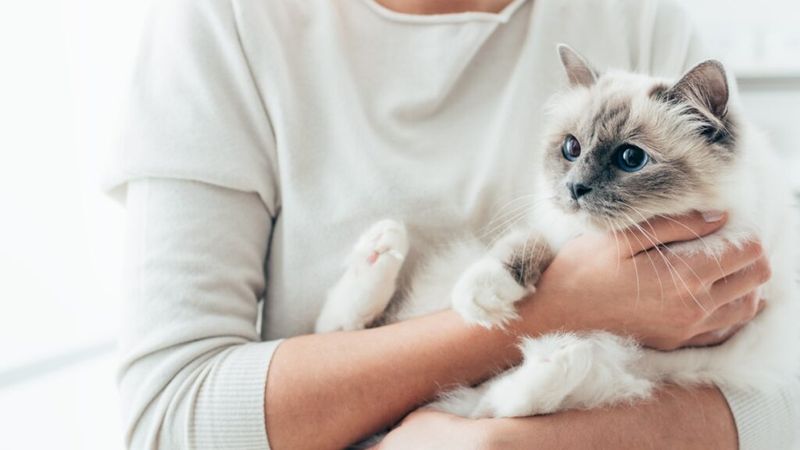📖 Table of Content:
We often think of cats as mysterious, independent creatures, but beneath their calm exteriors lies an impressive emotional radar. While they may not show affection or concern in the same way dogs do, cats are acutely attuned to the emotional undercurrents of their humans. Their sharp senses, combined with a strong bond to their environment and companions, make them surprisingly in tune with how we feel—even when we haven’t said a word.
From pacing to posture to subtle changes in our voice, cats pick up on cues we might not even be aware we’re giving off. It’s not magic—it’s biology and behavioral sensitivity. Over time, your feline friend learns your emotional rhythms, adapting their behavior accordingly, whether to comfort, avoid, or simply observe.
This ability not only deepens the bond between cats and their humans but also highlights just how socially intelligent our feline companions really are. If you’ve ever noticed your cat curling up beside you during a tough day or giving you space when you’re angry, it’s no coincidence.
1. Stress or Anxiety
There’s no hiding stress from a cat. Their sharp instincts evolved to detect tension in their environment, a survival trait from their wild ancestors. When you’re anxious, your breathing may quicken, your tone may rise, and your gestures become more erratic—all red flags for your feline friend. These changes signal that something is off, and your cat may react by becoming more cautious or even withdrawing. In some cases, they may hover nearby but keep a slight distance, observing your behavior. Alternatively, a particularly empathetic cat may climb onto your lap or knead you, as if to provide comfort. Cats read your stress like a silent alarm bell, and their reaction is often one of self-preservation or soft support.
2. Grief
Unspoken sadness is something many cats seem to feel in their bones. They pick up on the heaviness in your movements, the quiet in your voice, and the stillness in your routine. Often, when humans grieve or feel deeply low, their behavior becomes more subdued—something cats don’t just notice, but respond to. You may find your cat becoming extra cuddly, curling beside you with a soft purr or laying on your chest. Some will offer slow blinks, a feline gesture of affection and trust. Even aloof cats might appear more frequently in your presence during emotional lows, as if offering silent company. Their intuition seems to kick in most when words fall short.
3. Happiness or Excitement
Joy is contagious—even to cats. When you’re feeling upbeat, your body moves more energetically, your voice lifts, and your actions are more spontaneous. These shifts tell your cat that the vibe in the room is safe, fun, and stimulating. In response, many cats mirror the energy with playful behavior, such as zoomies, pouncing, or offering you a toy. Some will weave around your legs or meow in a way that sounds almost conversational. Your cat might also take this opportunity to initiate play, chase shadows, or roll on their back, fully relaxed. Happiness from you often means confidence and security for them.
4. Anger or Frustration
Raised voices, clenched jaws, and sharp hand movements don’t go unnoticed. In fact, these expressions of anger or frustration often make cats feel like they’re in danger, triggering a fight-or-flight instinct. A cat might suddenly dart under the couch or retreat to a quiet corner. Some will simply freeze in place, ears flicked back, observing until the storm passes. Others may react defensively, swatting or hissing if they feel the energy is directed toward them. While they might not know the cause of your mood, they definitely sense the heat behind it. Their instinct tells them that emotional turbulence is something to avoid.
5. Relaxation
Stillness and serenity speak volumes to a cat. When your breathing slows and your voice softens, your cat perceives that the environment is safe and stable. This is often when you’ll find them lounging close, fully stretched out in a display of trust. Cats love routine and calm energy, so a relaxed human makes for the ideal companion. Many will knead their paws, blink slowly, or emit low purrs as they mirror your calm. Your cat may even fall asleep beside you, using your body warmth as a sign that all is well. In many cases, your mellow mood becomes their perfect cue to unwind.
6. Fear or Panic
Sudden fear changes everything—from your scent to your movements—and cats pick up on all of it instantly. The shift from calm to chaos causes them to go into alert mode. You might see their ears perk, their tails puff up slightly, or their eyes go wide as they sense something is wrong. If your panic involves rushing or yelling, your cat may flee the scene entirely. Alternatively, some cats choose to hide and observe quietly until they’re sure things have settled down. They may avoid contact entirely until the atmosphere feels normal again. Fear breeds caution, and your cat is wired to respond to that instinctively.
7. Affection and Love
Words aren’t necessary when it comes to expressing love to your cat—they feel it in the way you touch, talk, and look at them. A gentle hand, slow blinking, and quiet conversation all tell your cat they are safe and cherished. In return, you may get slow blinks back, soft purring, or a head butt against your hand. Some cats will press their forehead against yours or curl tightly into your body, claiming you as part of their territory. Tail flicks, exposed bellies, and even playful nips can all be signs of returned affection. Every gesture of love you give is a bonding moment for them. Over time, these loving interactions form a deep, mutual trust.
8. Loneliness
Time and silence leave a mark, and your cat feels it too. Extended periods of solitude or lack of interaction don’t go unnoticed, especially in cats that thrive on connection. If you’re feeling lonely, you may move less, speak less, or disengage from routines, and your cat will recognize the shift. In response, they may meow more, follow you from room to room, or initiate physical contact. Some will bring toys, while others curl up beside you more frequently than usual. Their behavior subtly shifts to fill the void they sense. For them, your loneliness is a call to reconnect.
